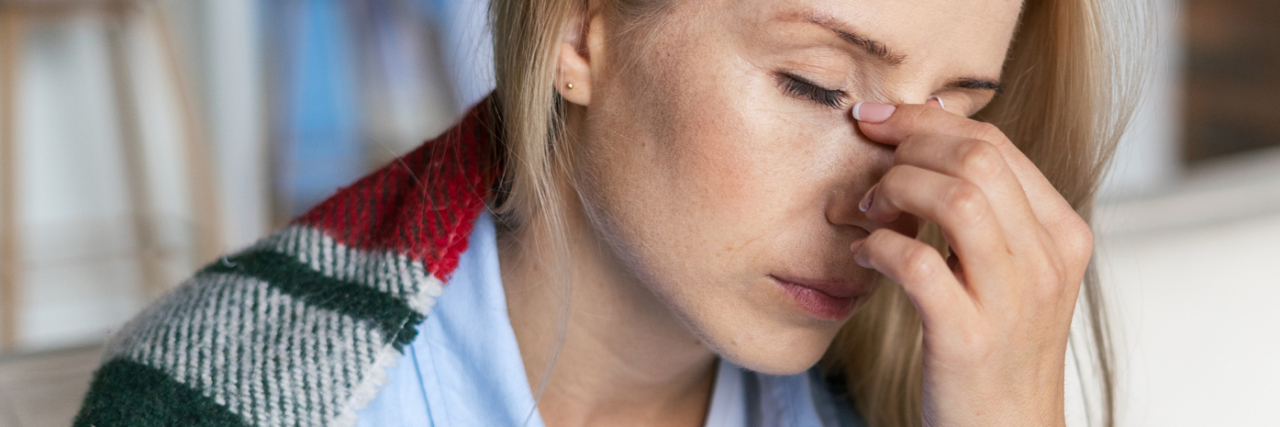3 Surprising Physical Symptoms of Schizoaffective Disorder
While schizoaffective disorder is a mental illness, and is marked by hallucinations, delusions, and a mood disorder, many people may not realize that there are a few physical symptoms that mark the illness as well. As someone with this disorder, I have found that I often experience physical symptoms that can be difficult to manage. The following are some physical symptoms of schizoaffective disorder that I have experienced as an individual living with the mental disorder.
1. Odd Behavior
“Odd behavior” is listed as a possible symptom of schizoaffective disorder, but there are so many behaviors within this symptom that may be present. Some examples of “odd behavior” are having hygiene issues, such as being unable to keep up with brushing teeth or showering, isolating, and being unable to communicate, or having issues communicating. In my personal experience, I have struggled with hygiene and I find that I often have difficulties communicating. I also tend to isolate myself, but this has a lot to do with my social anxiety.
2. Impulsive Behavior
Impulsive behavior can be defined as behavior that occurs without any thought. Many times this manifests as impulsively buying things, using substances, or making drastic life decisions without any or little thought. Many people with the bipolar disorder part of schizoaffective disorder often experience this during mania. However, I have the depression subtype of schizoaffective disorder and I still experience episodes of impulsivity. This has gotten me in trouble financially, and it is something that I am still learning how to work through.
3. Fatigue
Fatigue is a common symptom across various mental illnesses, and it happens to be common in those who have schizoaffective disorder. I find that I often need a lot of extra rest, especially when I am really struggling with hallucinations and delusions. This often becomes problematic, and I feel like I have to spend a lot of my days sleeping or at least resting to be able to handle the breadth of symptoms that I experience.
Schizoaffective disorder is a serious mental illness and one that is not easy to live with. While most of its symptoms are mental, I do find that the physical symptoms I experience become incredibly taxing. My impulsive actions have had a detrimental effect on my life, and I still struggle with managing these symptoms, especially when I am not fully aware that I am experiencing them. In my experience, I have found that my physical symptoms tend to be taken more seriously than my mental symptoms, which reveals the stigma that surrounds mental illness. It saddens me whenever this happens because it makes me question whether my mental symptoms are real or not.
If you or a loved one are experiencing any of these physical symptoms of schizoaffective disorder, I want you to know that you are not alone! While the physical symptoms of schizoaffective disorder may not be very well-known, they are valid and it is important to take note of them when they arise. If you are concerned about any other physical symptoms, you may be experiencing, consult your psychiatrist or a medical professional. Other physical symptoms of schizoaffective disorder and schizophrenia are not uncommon, but it is important to bring the topic up with a professional to ensure that the symptoms you are experiencing aren’t part of a separate illness.
It is time that we acknowledge that mental illnesses do have very physical symptoms that can mark the disorder. It is also time that we acknowledge that, sometimes, the physical symptoms may be the only mark of the disorder. This can become confusing, but mental symptoms of mental illnesses aren’t always present, which has been the case in my situation.
I hope that my experience has helped you to better understand your symptoms, or those you might have experienced in a loved one. The more we can help educate each other on the physical symptoms of mental illnesses, the more that we can help others receive the diagnosis and the help that they deserve.
Getty Images photo via brizmaker

